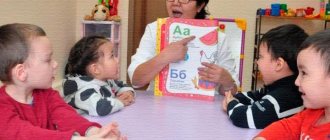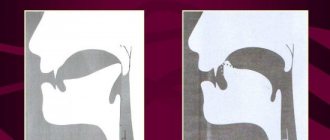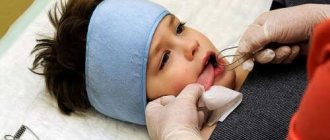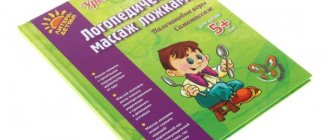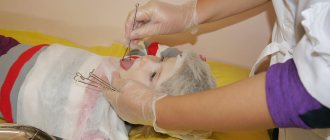How to get to the speech therapy garden? Step-by-step instruction
The need to take a child to a specialized speech therapy garden is established by the Psychological, Medical and Pedagogical Commission (PMPC). Previously, a referral for a commission was given by a speech therapist when examining a child in kindergarten or by doctors at a district clinic, primarily a neurologist. Now, if parents see the need for specialized training, they can independently submit an application to the PMPC.
Registration for a speech therapy kindergarten is not a quick process and requires the preparation of certain documents. We offer you the optimal, in our opinion, step-by-step tactics for preparing for the PMPC and further queuing for the logos kindergarten.
Step 1. Make an appointment at TPMPC. You need to find out the address of the commission where the examination is taking place. There are such commissions in every district of the city. You can make an appointment in person by arriving during business hours, or through the website. Since there are many people who want to pass the commission, you will be given a date after a month or a month and a half, during which time you will have time to prepare all the documents. We also recommend that you contact us at the very beginning of the school year, since from February 1, lists of children in groups for the next school year begin to be formed. Please note that during the summer months the PMPK is not open, so the most favorable time to apply is from September to February.
Step 2. Visit a neurologist at your local clinic. The neurologist must issue a medical report on the presence and nature of disorders that require the child to undergo specialized training. An important condition is that the doctor must make a clear diagnosis, which is in the ICD list. This may be alalia, dysarthria, logoneurosis and other diseases that require correction.
Step 3. Visit the pediatrician and ask to prepare a detailed extract from the child’s developmental history. Some TPMPC have special forms for this, which can be downloaded on the commission’s website or taken during an in-person visit; in other cases, the extract is prepared on an A4 sheet. It is important not to forget to put the stamp of the institution that issued the extract on it. As a rule, parents themselves fill it out at the insurance desk of the clinic, but it is better to check with your pediatrician.
Step 4. Take documents from kindergarten. It is necessary to obtain a certificate from the teachers stating that the child actually attends the kindergarten, as well as a reference for the child. The documents must have the signature of the head and the seal of the institution.
Step 5. Preparation of remaining documents.
Parents will also need:
- Application for examination at TPMPC
- Application for passing PMPC
- Consent to the processing of personal data and examination of the child by specialists (neurologist, psychiatrist, orthopedist, pediatrician). These forms are standardized and are issued by the TPMPC. They can also be downloaded from the commission’s website. All applications must indicate the date of immediate submission of documents.
- Identification documents (for a child - a birth certificate and its copy, for a parent - a passport or a document replacing it).
Step 6. Complete the PMPK. You must arrive at the commission with all documents at the appointed time. The whole procedure will take no more than 15 minutes. Based on the results, the commission must issue a conclusion on the need for a speech therapy garden or give a recommendation to visit the commission in a year.
Step 7. Choose a speech therapy kindergarten and join the queue of future students. Not all districts have specialized institutions; some state kindergartens have speech therapy groups. After parents have decided on the desired kindergartens, they must submit an application for enrollment or transfer of the child to a speech therapy kindergarten. In the best case, the child will begin attending speech therapy kindergarten in the new school year. When there are not enough places, you can wait a year or two (with not very complex diagnoses, children attend speech kindergarten only for a year or two - before school).
You can read about the pros and cons of speech therapy gardens in another article on our website.
Article:
How do you get into speech therapy kindergarten? Should I get in line again? Should I just get a referral from a speech therapist, or go through a special commission? There is an opinion that a speech therapy garden is a certain “stigma” in a child’s personal file. Is it really? First, let's figure out what a speech therapy group is? Correctional groups are divided into speech (speech therapy) and groups of children with mental retardation (delayed psycho-speech development). In speech therapy groups, they introduce sounds that were not there and correct incorrectly pronounced ones (correction of speech defects), enrich the vocabulary, develop phonemic awareness, coherent speech, and teach correct grammatical formatting. In the senior and preparatory groups they prepare for learning to read and write. In the ZPR groups there are both a speech therapist and a defectologist (in addition to teachers who have the necessary qualifications). Every year for different ages is a multifaceted work. There are kindergartens where all groups are speech. There are - where there are only groups with mental retardation. There are gardens where speech (speech therapy) groups + groups with mental retardation + ordinary groups = a combined type garden. There is an ordinary garden where there is a logo station. ONLY children with IMPAIRED PRONUNCIATION are enrolled in the speech center. But, in any case, a speech therapy group in our time is not a punishment, but most likely a reward, because it has become more difficult to get there, and the general underdevelopment of speech is easier to correct in the garden, where all the work is aimed at eliminating this problem. Perhaps it is no longer a secret to anyone that in speech therapy kindergartens the preparation of children, no offense to anyone, is sometimes much stronger than in mass kindergartens. Because children from a speech therapy kindergarten come to school with a much better vocabulary than children from a regular kindergarten. They know more, they have a wider vocabulary, many skills are better formed, starting with graphic skills, sound-letter analysis and ending with stories based on pictures, generalizing concepts are better formed. That is, children come from speech therapy kindergartens even more prepared. Some parents are very attracted by all this splendor, and they dream of enrolling their children in a speech kindergarten. Others are afraid of speech therapy kindergartens, believing that a child who finds himself among poorly speaking peers will begin to speak even worse than before. These are misconceptions. A child with speech therapy problems does not begin to speak worse because he communicates with other children with similar disorders. The only exceptions are those cases when a child with pronunciation problems ends up in a group of children who stutter. Indeed, there are cases where a child develops stuttering “by imitation.” But specialists, as a rule, avoid such mistakes. So, for one reason or another, you think that your child definitely needs a specialized speech therapy kindergarten. What do you need to do to get into a speech therapy garden? The speech therapy kindergarten accepts children mainly 4-5 years of age, since correction of speech disorders is especially important for them in order to successfully prepare for school. From the age of 3 you can join a group for children with delayed psycho-speech development (DSD). It will be very good if you, dear parents, have already visited several educational institutions. You will talk with the head/director about the availability of free places, perhaps visit the advisory center at the institution, where you will meet specialists. The district Psychological, Medical and Pedagogical Commission staffs preschool institutions for children with speech impairments. Addresses and telephone numbers of district PMPCs in Moscow can be found here. What specifically needs to be done: From October 1, 2010, the procedure for recruiting preschool educational institutions has changed. Now the procedure for enrolling in a preschool educational institution is established by order of the Moscow Department of Education dated August 31, 2010 No. 1310 “On approval of the Procedure for recruiting state educational institutions that implement the basic general education program of preschool education, the system of the Moscow Department of Education.” How to enroll a child in a speech therapy kindergarten Step 1. In order for a child to be sent to a kindergarten for children with mental retardation, it is necessary that he be registered in the Unified Electronic Register of the Automated Information System “Employment of Preschool Educational Institutions”. Parents are given the opportunity to independently register their child in this Unified Electronic Register on the website ec.mosedu.ru. You will be able to independently track the progress of your child’s order in the Electronic Register of Future Pupils. Step 2. Go to a speech therapist at the local clinic. The speech therapist examines the child, gives a referral to undergo a PMPK (psychological-medical-pedagogical commission) Step 3. Collect several certificates for the PMPK: - from an ENT doctor, - an ophthalmologist, - a pediatrician, - a neurologist (for children under 3 years old), - a psychiatrist . Step 4. Find the address of your district PMPK, call and make an appointment. Step 5. On the appointed day, come for the examination with your child. What you need to take: Documents for passing PMPC Necessary documents for speech therapy kindergarten: Child’s birth certificate; Passport of the parent or person replacing him (for temporary residents of Moscow and registration certificate); Four medical reports: - a child psychiatrist from the primary care hospital at the child’s place of registration (for children under 3 years of age - a neurologist at a district children’s clinic), - a speech therapist at a district children’s clinic, - an otolaryngologist at a district children’s clinic, - an ophthalmologist at a district children’s clinic. If the child previously attended a kindergarten, it is necessary to additionally provide a psychological and pedagogical characteristics from this kindergarten. If the child has previously passed a commission in another city or district primary medical education center, it is necessary to additionally provide a psychological, medical, and pedagogical opinion from this commission. Your child will be examined by the following specialists: - speech therapist, - psychologist, - sometimes a neuropsychiatrist. The commission’s task is to determine whether the child really lags behind his peers in speech development or whether the parents are simply playing it safe. Or maybe they definitely want to enroll the child in a speech therapy group, despite excellent speech and development according to age? It happens! If the commission decides that the child has problems, then the question arises: which speech therapy kindergarten should the child be sent to? After all, diagnoses are different, and depending on them, a group of children of a certain age is recruited. For example, if a 4-year-old child is diagnosed with “general speech underdevelopment (GSD) of level 1-2,” then the senior speech therapist looks at which kindergarten is enrolling 4-year-olds with this diagnosis this year. And if a 6-year-old child has problems with sound pronunciation (hissing and whistling sounds are distorted, the baby does not pronounce “r” and “l”), then such a child will be sent to another group - a preparatory group, where the program is different and the requirements for learning outcomes are higher . For children who stutter, there are generally separate kindergartens with their own program and a set of specialists (for example, art therapy classes are held there). At the commission, the child is assigned to one of the following groups: - stuttering; - general speech underdevelopment (children with delayed speech development or severe lexical and grammatical speech disorders are sent here); - phonetic-phonemic speech disorders (simply put, these are pronunciation disorders - cases when a child pronounces 10 - 12 sounds incorrectly); - violations of the pronunciation of individual sounds (2 - 3 sounds). So, your child will be examined and given a certificate of completion of the PMPC. Only after the commission can parents breathe easy: on September 1, the baby will definitely go to kindergarten. In addition to gardens that are completely devoted to speech therapy needs, speech therapy centers are widespread in ordinary kindergartens.
Speech therapy projects for preschoolers
Among all speech therapy events for preschoolers, speech therapy projects and a summer health campaign for children with speech disorders occupy special positions.
Speech therapy projects in preschool educational institutions
To more deeply and systematically improve work performance, special speech therapy projects are being developed for preschoolers. These projects are divided into categories:
- By duration of work: short-term and long-term.
- By type of activity: research, practice-oriented, creative, informational and gaming.
If there is work to be done on setting individual sounds or learning tongue twisters, then a short-term speech therapy project at a preschool educational institution is used. If there is work to be done on working on speech breathing or improving physical health, then it will be long-term, since this work must be carried out over a long time.
Each such project has a goal, objectives, expected results, the practical significance of the project, as well as its stages and implementation strategies.
The speech therapy project is developed taking into account the age of the children in the group, as well as based on the diagnostic results. Also, the speech therapy program is a project of a speech therapist teacher at a preschool educational institution, and a joint development of all teachers carrying out correctional work in the institution. But its main compiler is a speech therapist.
Note! Speech therapy paths are often used in correctional work. This is a technique that allows you to develop several areas: speech breathing, articulatory motor skills, and coherent speech. The student must follow each path from beginning to end.
Speech development in the younger group - norms for children's speech development by spring
What is a speech therapy camp for children?
A speech therapy camp is a health program for children that operates in the summer and provides activities for the correction and development of speech. Typically, such a camp employs a teacher, educational psychologist, speech therapist, physical education instructor, and sometimes an art teacher and theater teacher. The entire program is aimed at a comprehensive approach to the correction of speech disorders: starting with articulatory gymnastics and games for the perception of sounds, and ending with special nutrition.
Speech therapy camp for children with speech disorders
A speech therapy camp for children with speech disorders operates on the basis of a preschool educational institution or as an independent organization. The main purpose of such organization of time is to provide assistance to preschool children with speech disorders.
Such work in the summer shows the greatest effectiveness, since in addition to corrective classes with children, therapeutic exercise and self-massage are carried out for general muscle strengthening, healthy nutrition and long walks in the fresh air are organized. Usually, in a camp, all shifts have their own themes and classes are held in a playful, developmental form, therefore they find the greatest response from children and their legal representatives.
Note! Leisure activities are also organized for children, which help develop creative and physical abilities: visiting the swimming pool, theaters, and city festivals. In addition, to monitor effectiveness, speech therapy examinations of preschool children are carried out at the beginning and end of the shift.
So, parents of a child who agree to undergo medical examinations must visit the following specialists:
- Oculist
- Otolaryngologist
- Neuropathologist
- Dentist-orthodontist
- Psychiatrist
- Pediatrician
- For some kindergartens, they ask for an additional visit to the surgeon
Make sure that doctors put their signatures and seals on the referral, and be sure to complete all formalities. They issue a referral in advance in order to have time to see all the doctors before the meeting of the PMPC (psychological-medical-pedagogical commission).
In addition to a referral with notes from all doctors, you will also need:
- Copy of the child's birth certificate
- Characteristics written by a teacher and speech therapist
- Application for transfer to a speech therapy group
about what day and where the commission will meet . Usually this happens in the kindergarten itself or in the RONO. Specialists will talk with the child and check for papers and evidence. The composition of the commission may vary in different cities, but, in most cases, it consists of a psychologist, speech pathologist, speech therapist, and representatives of the Regional Educational Institution.
Usually they ask questions about intelligence and logical thinking. They are asked to repeat sound phrases in order to better identify problems in the pronunciation of individual sounds. Judging by the reviews of parents, the conversation with the baby is very short, about 10-15 minutes, and the result is immediately announced.
Representatives of the PMPC commission may ask:
- assemble a pyramid;
- put a circle into a circle, a square into a square, a triangle into a triangle, etc.;
- name the figures;
- name the colors;
- collect body parts of a paper man cut out;
- name the seasons, which one it is now;
- answer who the child is to mother, grandmother, uncle, etc.;
- find an extra item;
- answer spatial questions: where the cat sits (on a chair, under a chair, behind a chair, etc.);
- tell what the people in the picture are doing;
- say words like: stir up, mezzanine, etc. to check the pronunciation of sounds;
- combine objects into groups according to some criteria;
- draw something;
- recite a poem or sing a verse of a song
and other questions on pronunciation of sounds, intelligence and logical thinking. It is better not to teach the child to answer these questions in advance, because the clearer the experts make the diagnosis, the more accurately they will determine measures to correct the problems.
There is no need to be afraid of any terrible diagnoses; in fact, the following diagnoses are appropriate for a speech therapy group:
- FFND - phonetic-phonemic speech underdevelopment
- GSD - general speech underdevelopment
- Logoneurosis - stuttering
We advise you not to refuse transfer to a speech therapy group, especially if the child really has speech problems. Children attending such kindergartens are already trained to write, read, count and pronounce all sounds correctly by the time they go to school. On top of everything else, it’s simply profitable, because one lesson with a private speech therapist costs from 500 rubles and above, and in the kindergarten they will constantly work with your child for free, they will assign homework at home, which will further prepare the child for school and teach discipline and responsibility .
If you have interesting cases or stories related to passing doctors and the commission for admission to a speech therapy group, share them in the comments.
(098, today: 2)
0 0 votes
Article rating
